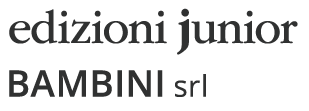Periodical N. 1 2018
The institutionalization of Educational psychology at “Sapienza” University of Rome
Carlo Trombetta
After explaining the concept of institutionalization, the author examines timing and way in which Educational psychology has been established as one of the subject matters taught at the “Sapienza” University of Rome to obtain a degree in Psychology.
Sociocultural changes and changes in psychological development
Dario Varin
This article aims to investigate the relationships between the changes of sociocultural contexts in the last decades and the new trajectories of children’s and adolescent’s development, following the perspective of the ecological theory. We reviewed the literature concerning the influences of the media environment in which children live today, considering both the social and the biological factors and focusing on the changes in the cultural context, with particular reference to the studies of Jean Twenge and her colleagues (2014).Moreover, we took into account the principal findings of the neuroscience concerning the effects of the media on the developing brain. The psychological and educational consequences of these changes are discussed, considering the new paths in the biological, cognitive and the social development. Finally we report in short some findings of an Italian inquiry which investigates how 231 caretakers and teachers with thirty years of teaching experience perceive today’s children as compared with yesterday’s children.
Well-being at school: a possibility!
Daniela Bolfo, Cunegonda Spinosa, Chiara Stella, Laurent Valter
Body and movement constitute an essential axiom for the children’s development and assume a specific educative value in the development of cognitive, emotional and motor competences and skills. Methods and approaches that allowed an operative application of the somatic education fundamentals are a lot. The purpose of the present educational project is to apply and share the Feldenkrais® Method peculiarities in the pre-school and primary school setting; included a case history based on our experience matured in the schools between 2011 and 2017. This experience shows how the Feldenkrais® Method becomes an integrated program linking movement education with other abilities. Playing and moving like the animals bring the participants to re-discover the motor schemes of the first life year enhancing multi-sensoriality. The qualitative results demonstrate that there are improvements not only in the movements skill, but also at psychological and relational level.
School as a training ground: how to train the mathematical thinking
Lorella Carimali
Mathematical competence is a key competence for personal fulfillment and growth (cultural capital), active citizenship and integration (social capital), and the capacity for professional integration (human capital). For this reason it should be developed in all students. It is essential to make students acquire not only correct reasoning habits, but also train them to become aware of the processes underlying their reasoning, that is to learn to think mathematically. It is necessary to transfer to the students the control and responsibility of their own learning by designing and creating “formative situations” of various types that are complementary and focused on learning. Teachers become real trainers who prepare students to “run the marathon”, planning activities and defining the exercises, places/environments according to the characteristics of the individual and monitoring progress and results.
Emotional, social and behavioural aspects of students with specific learning disabilities
Valeria Cavioni
This paper aimed to describe the complex framework of emotional, social and behavioral difficulties of students with specific learning disabilities. The first part of the article describes the main characteristics of the disorder, raised since the first studies, related to peer group acceptance, friendship and social isolation. Furthermore, the effects of these difficulties on self-efficacy and self-esteem, communication skills, peer pressure, social and emotional skills, externalized and internalized behaviors are mentioned. At last, parents’ difficulties of children with specific learning disabilities are described and the importance of providing specific supportive interventions related to emotional and social learning skills of children at school is emphasized. Finally, implications and recommendations for educational contexts are described.
Student-athletes and the importance of the cooperation between school and sport systems: athletes’ point of view
Chiara D’Angelo, Eleonora Reverberi e Chiara Corvino
Student-athlete is a relatively new figure in the Italian school system, just recognized within the last reform of the school system (in 2015) called “Buona Scuola”, that establishes the necessity to take a «particular attention to the educational right of student that practice sport at competitive level» (comma g, point 7). In many sports, athletic career begins at 10-12 years, lasts more or less 10-15 years from the peak performance moment and requires high commitment, in terms of time and effort – spent in competitions and training – but also economic, mental and physical resources. The increasing athletic demands take place during compulsory schooling (middle and high school), or University, justifying the “student-athlete” label assigned to whom should hold together both school and sport. After defining the student-athlete and the dual career issues, in this contribution we collected the “athletes’ voice”, their needs and expectations, knowledges and experiences, challenges and will. A total of 115 Italian athletes, practicing different sports, answer the online survey. Data shows that athletes want to carry on education and sport at the same time, but this requires them to organize in a different way their time and modalities of learning, especially in terms of spaces and people. They consider the family as the main support in dual career, nevertheless they also point out the necessity to be supported from the sport (by coach), school (with more flexibility in exams) and the need of dedicated figures who they can refer to for dual career issues. They also wish to meet the labor market, by practical internship or experiences. We finally discuss implication for teachers, by using a holistic approach.


